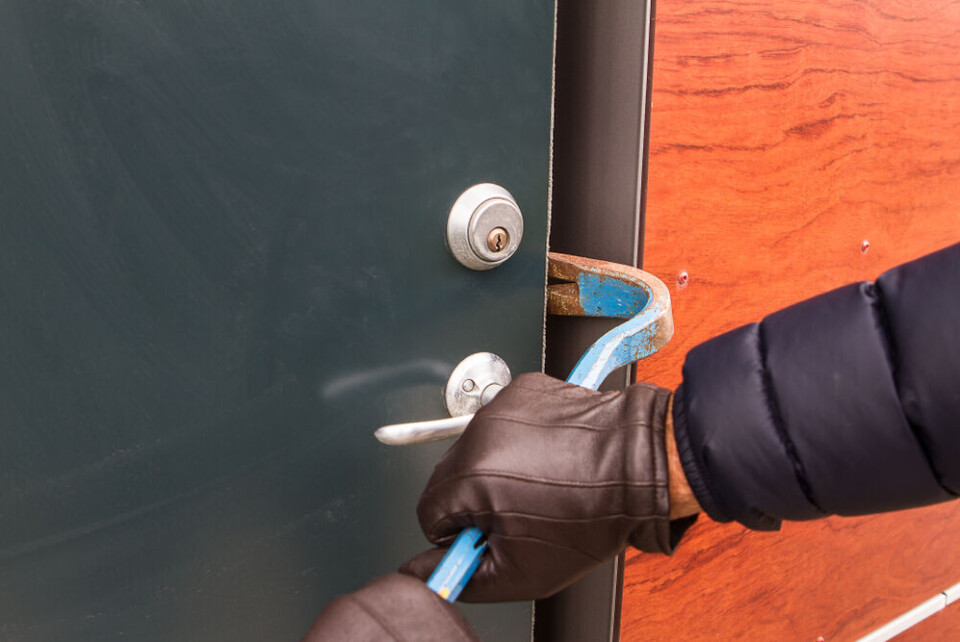-
What are penalties for not conforming with new septic tank request?
Some financial aid is available for homeowners needing to install new tanks
-
Are second homes in France a good investment?
Investment picture is variable depending on geographical location
-
See what €50,000, €200,000 and over €500,000 buys in Seine-Maritime
Towns and villages have distinct Norman French architecture
What are the laws surrounding trespassing in France?
Trespassing rules are governed by the furnished condition of a house and can include any garden also

Reader Question: I am worried about people entering my second-home in France, because it is empty most of the year. Does French law have rules against trespassing for properties which are not used often?
The law in France is quite clear that entering someone’s home without any prior permission is a crime, potentially punishable by a large fine and/or prison sentence.
The crime of trespassing (violation de domicile) is noted in Article 226 of the French penal code, and applies in all situations when a person enters a home without permission.
This law applies to any place that can be classified as a person’s ‘domicile’, meaning it contains both personal belongings and is furnished.
You do not need to be currently living in the property, meaning second homes owned by those not living in France are also covered by the law, provided the home is furnished and contains some items a normal home would.
Hotels and holiday homes are also considered to be a person’s ‘domicile’ whilst they have the right to access them, with anyone breaking into this location being potentially guilty of trespassing.
A car or van however is not covered by this law as it is not intended as a living space.
In addition, access to the building has to be made through one of four ways:
-
‘Manoeuvres’ for example climbing a wall or picking the lock on a door
-
Using threats, either verbal or physical, to gain entry
-
Assaulting a person to gain entrance
-
Coercion, classed as ‘depriving an individual of his or her freedom of action’
Note that these rules can apply to people who enter general property (gardens, lawns) as well as a person’s home, but the measurements of the ‘manoeuvres’ are stricter.
Read more: Neighbour comes into my garden in France uninvited: what can I do?
Are there any exceptions?
There are very few exceptions to the rules.
The most important is for ‘pompiers’ (firefighters, who can also provide assistance in medical emergencies).
Pompiers can enter a house by any means possible if they believe there is an imminent threat to a person’s life.
Police officers or gendarmes can enter a home without asking permission only if they possess a search or arrest warrant for a person, or are taking part in an immediate, live, and developing operation (i.e, chasing after a person who is fleeing arrest).
Bailiffs in possession of a titre exécutoire (writ of execution) to carry out a task can also enter.
Civil servants, for example notaires, magistrates, bailiffs without a writ, and police officers without a warrant cannot force entry into a property, and can be charged with breaking the ‘inviolabilité du domicile’ if they enter a home without justification in relation to a case.
If a civil servant enters a home illegally not in relation to an activity relating to their work, they are charged with trespassing as any other member of the public is, and their job is not taken into consideration.
Read more: Explainer: How criminal courts and jury service work in France
What are the penalties?
An individual charged with trespassing can face up to one year in prison, and a €15,000 fine, but for civil servants, these punishments are potentially doubled.
Additional penalties a judge may impose include barring a person from holding a public office, engaging in a professional or social activity close to where the crime was committed, and being disqualified from certain civil, civic and family rights.
Cases where threats, violence, manoeuvres, or coercion were also involved (or combined) can be punished by three years in prison and fines of up to €45,000.
Attempted offences (failed cases of trespassing) can also face similar penalties.
Read more: Tips on reducing the risk of a break-in at your home in France
How do I take legal action if I have been a victim of trespassing?
If you believe that your home has been trespassed (or you were physically present when someone did break into your home), you should file a report at your local police or gendarme station.
In cases which also include theft or property damage, you can file a pre-report online.
Alternatively, you can file a complaint directly with the public prosecutor via a letrre recommandé avec accusé de réception (registered letter with acknowledgement of reception), or lodge your complaint directly with the court reception desk.
Related articles
Four sent to jail over ‘home-jacking’ in south-west France
Did you know French police can check on your home while you are away?
























